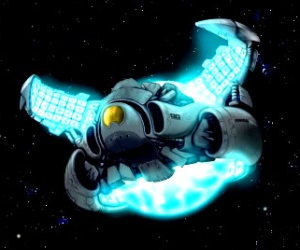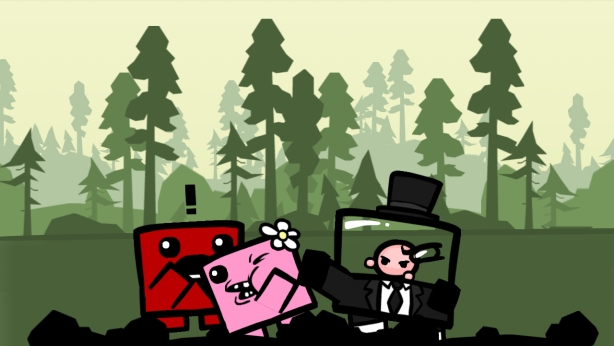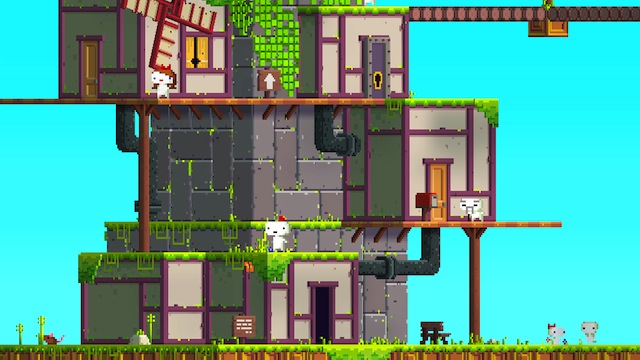Why Is Tabloid-Spin More Popular? A Look at the Reception to FuturLab’s Velocity
 It has always been said that there is no such thing as bad publicity. It’s not unusual for any form of media to put a negative or sensationalist spin on an event to evoke some sort of reaction, be it more readers/hits or to spark a discussion.
It has always been said that there is no such thing as bad publicity. It’s not unusual for any form of media to put a negative or sensationalist spin on an event to evoke some sort of reaction, be it more readers/hits or to spark a discussion.
While the games industry are used to these sort of shock tactics from press outside of the industry, it is incredibly rare that these instances happen from media outlets contained within the industry itself. Maybe that’s because there is a sort of camaraderie between everyone involved in gaming, from amateur & professional writers, to games developers, PR & publishers; we do what we do because of our love of the industry. We go to press events and social gatherings and from my own experience, we all get along like a house on fire.
Which is why it’s sad to see a blog post from indie developer FuturLab, who feel hard done by some of the bigger games publications. James Marsden, head of FuturLab was interviewed by TheSixthAxis very recently, regarding the current state of PlayStation Minis. Within this interview, he made genuinely constructive comments about things that could be improved within the Minis range; additions such as support for Trophies, online functionality and demos, features that could be used to make the purchase of Minis a more attractive proposition for consumers.
Following its publication, some of the internet’s biggest gaming publications began a game of Chinese Whispers. IGN picked up the story soon after it was published, which would have been fine if it weren’t for one sentence in the second paragraph of the article:
And in a conversation with The Sixth Axis, developer James Marsden of Futurlab thinks it’s a major problem.
As James himself says on FuturLab’s blog, “major problem” wasn’t his own words. The article spawned over 400 user comments (as James notes, more than IGN’s own positive Velocity review). The article didn’t even give any context to the original interview, with not even a mention of Velocity.
Eurogamer later covered the same interview with less spin, the result being a far more balanced article, lots of references to Velocity (including a trailer and a link to their review). It’s arguably a more positive story, but one that only received 55 comments. It’s interesting to note that a sizable amount of those comments were singing Velocity’s praises, while others discuss reasons why Minis aren’t so successful.
Then we go to CVG, who had apparently spelt FuturLab’s name wrong (FutureLab) in their subheader, but went with the headline “Dev blasts Sony for lack of Minis Trophies, demos”, which seems to imply that James’ comments weren’t the measured suggestions that they originally were, but outraged demands to Sony. No mention of Velocity here either, by the way. It’s this retelling of the interview that seems to be sparking the discussion.

All of these articles read differently from the original interview, their tone differing thanks to the choice of words used in each piece. As someone who has the utmost respect for all of those publications mentioned, I’m not in the business of slagging other writers off; but in changing the tone of the original interview, those negatively-spun pieces are not only doing deceiving their readers, but are doing smaller developers like FuturLab a real disservice.
Like many Mini developers, Futurlab have a regular struggle in getting their games noticed. Velocity bucked the trend because of great reviews and a real sense of grassroots support in terms of word of mouth. Incidentally, Sean reviewed the game and gave it a 9/10 score, we also dedicated a First Look to the game, while I have personally mentioned the game on our flagship podcast, The Godcast. The game was supported by Sony as a free PlayStation Plus download on launch, which did a great deal in getting the game out to an audience that immediately fell in love with the title.
Unfortunately, other PlayStation Minis struggle to reach that sort of popularity. Allow me to be frank and honest; before Velocity I had no interest in any of the PlayStation Mini titles, in fact Velocity was the first one I ever played. That’s because there is little to no coverage on these games from some of the larger sites and no demos with next to no marketing offered by Sony. FuturLab have obviously communicated their concerns with those facts and it’s disappointing that certain publications have chosen to show those valid concerns in such a negative way, when so many sites are quick to ignore smaller titles such as Velocity.
As the FuturLab blog post says, they have found it incredibly difficult to get their game noticed. So as writers and gamers, why can’t we all get onboard and give ALL smaller developers a helping hand. Games such as Velocity, Fez, Limbo, Frobisher Says, Super Meat Boy and more have turned my opinions of indie games completely around; I recognise their importance as passion-projects that deserve our attention as much as a Triple-A title does (infact, moreso). With so many bigger development studios suffering closures and financial issues, spare a thought for the smaller developers that seem to be bringing more creativity to the industry in recent years, in many cases at great risk and cost.

We asked James himself, for his own thoughts about what fellow Mini developers can do to get noticed:
The best piece of advice I can give is to keep thinking until you have a stunning idea that is so exciting you can’t sleep at night. Even then you’re going to struggle to get anyone to care about your game, so you need to be certain it’s brilliant before you begin the process of finishing it and taking it to market.
On whether this situation has changed how he and FuturLab deals with the press in future:
I’ve realised that I have to be very careful about what I talk about, and how I talk about it. I guess everyone that has some level of success has to learn this lesson at some point. It was our time.
Finally, we had to ask about what’s next for FuturLab, after the success of Velocity:
Hopefully more of the same. We do need support for Velocity in order to continue. We had to start very small with Coconut Dodge, and Velocity is a step up that was part funded by that initial step. We’d like a chance to create a bigger title – a full PSN/PS Vita title would be amazing. Fingers crossed.
With deservedly positive coverage of FuturLab, from a variety of sites and publications, hopefully the chance for them to create a full PSN/PS Vita title will be given and fully realised.




